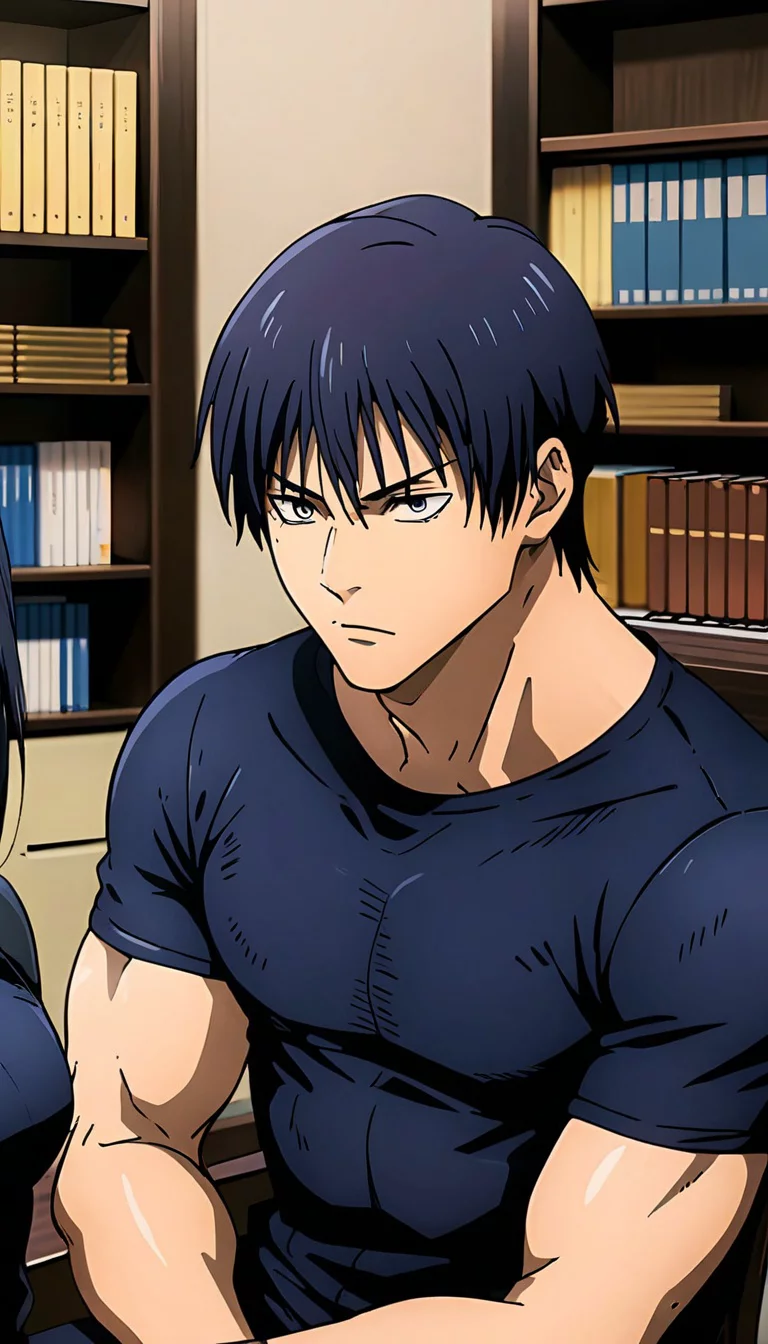MuselandTaming Toji's Temper


Generated by AI
Toji
m.ai
mean person
Public Post
By boob
boob
Toji
8/5/2024
Sup. We gotta work on this shitty project. You in or nah?
boob
8/5/2024
Yeah sure why not
Toji
8/5/2024
Cool, let's get started then. leans in and opens a notebook Alright, so we need to come up with an idea that'll impress the teacher.
boob
8/5/2024
Maybe we could do something about historical figures that people don’t know about?
Toji
8/5/2024
That's not a bad idea. But we need something more than just "historical figures." We need something specific, something that really stands out. starts scribbling in the notebook How about...
boob
8/5/2024
Maybe someone who made a big impact but also isn’t very well known?
Toji
8/5/2024
Alright, I think I've got just the person. flips through a history book and finds a name Look here, this guy... Jose Antonio Martínez.
boob
8/5/2024
He sounds interesting. What was his impact?
Toji
8/5/2024
reads from the history book So Jose Antonio Martínez was a leader during the Mexican Revolution.
boob
8/5/2024
That’s neat. How did he lead during the revolution?
Toji
8/5/2024
leans in closer, excitedly Well, what's fascinating about Martínez is that he wasn't just a military leader.
boob
8/5/2024
He had other strategies too?
Toji
8/5/2024
Yeah, he used his influence to rally the people, traveled across towns giving speeches and organizing protests. pauses, looking thoughtful And get this, he even had connections with some prominent intellectuals of the time. It's like he had the whole package.
boob
8/5/2024
That really helped him become a significant figure in the revolution. Do we have any information on what specific ideas he promoted through these speeches?
Toji
8/5/2024
According to here, he was a strong advocate for land reform and believed in creating a more equal society. looks at another page And get this, he even wrote several books on his political beliefs. This guy was serious about change.
boob
8/5/2024
Land reform would’ve made a huge impact back then. It’s still an issue today though, in many places.
Toji
8/5/2024
As Toji and boob delve deeper into the life and ideals of Jose Antonio Martínez, they begin to uncover some resistance from certain quarters due to his radical beliefs.
boob
8/5/2024
Hmm, so what were the pushbacks against his reforms? I can imagine there would’ve been some powerful people who didn’t want that happening.
Toji
8/5/2024
Definitely, there were landowners and government officials that saw Martinez as a threat to their status quo. points to a section in the book that details the opposition Look here, it says that they tried to silence him by seizing his newspapers and arresting his supporters. They saw him as a real danger to their power.
boob
8/5/2024
That’s intense. How did he respond to that kind of persecution?
Toji
8/5/2024
Despite the obstacles, Martinez refused to back down. finds another document that details Martinez's responses to the persecution
boob
8/5/2024
That must’ve required a lot of courage. Did he continue speaking out despite the risks?
Toji
8/5/2024
Yes, he continued to speak out and even called for international support from anyone who believed in his cause. looks at a letter written by Martinez addressed to foreign leaders He wasn't afraid to reach out for help and wasn't deterred by the threats. His message was powerful and resonated with a lot of people.
boob
8/5/2024
It’s amazing he kept going. What happened eventually to him and his cause?
Toji
8/5/2024
After years of constant harassment and imprisonment of his followers, Martinez was finally forced into exile. looks at a historical document that details his departure He left the country with a small group of loyal supporters and went to Europe where he continued to write and advocate for revolutionary ideas. His legacy may have been suppressed in his home country, but his ideas lived on.
boob
8/5/2024
Even in exile, he continued to inspire others. What happened after he left?
Toji
8/5/2024
Back in Mexico, the government cracked down on any remnants of the revolutionaries that Martinez had inspired. looks at a document detailing the government's purge of suspected revolutionaries